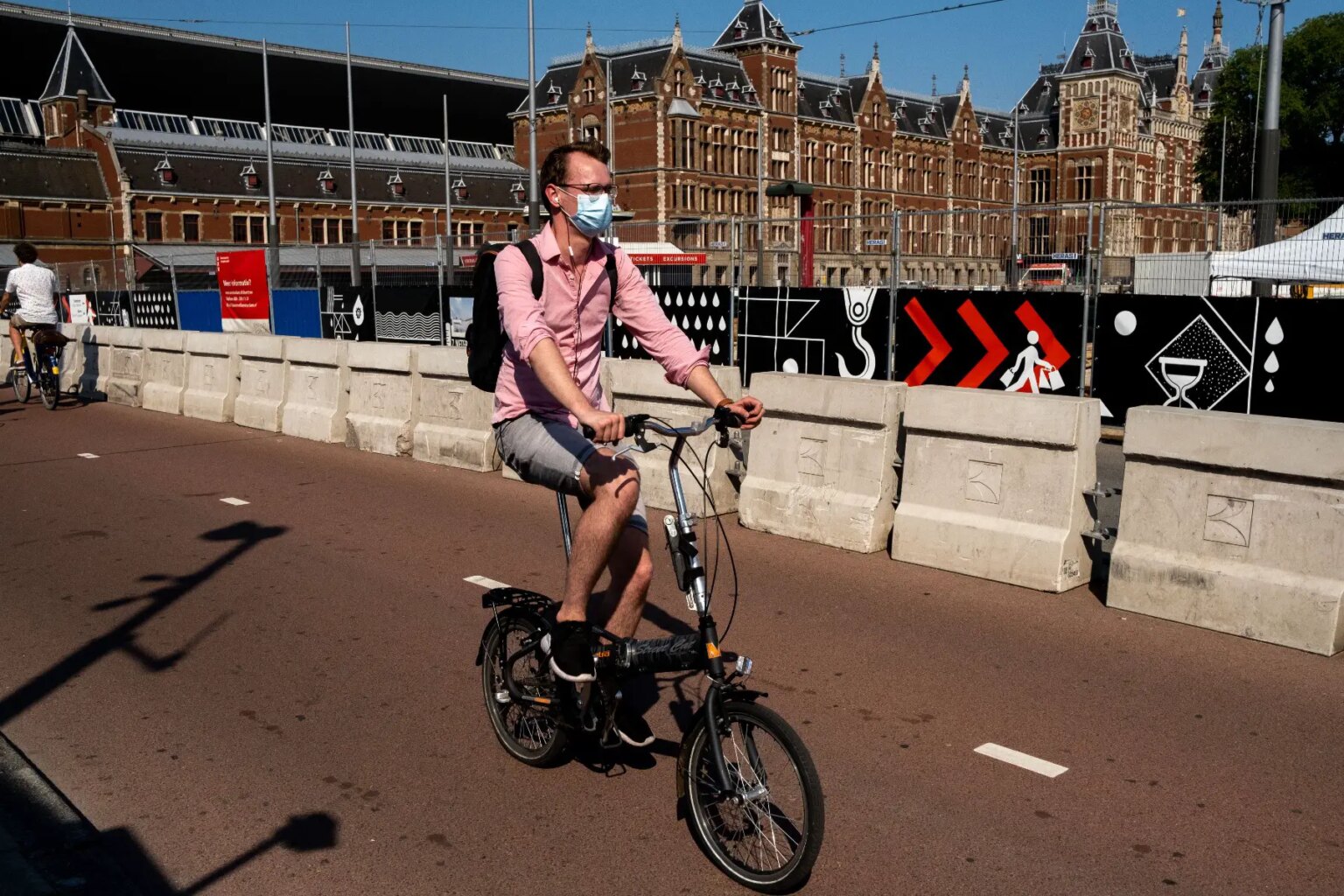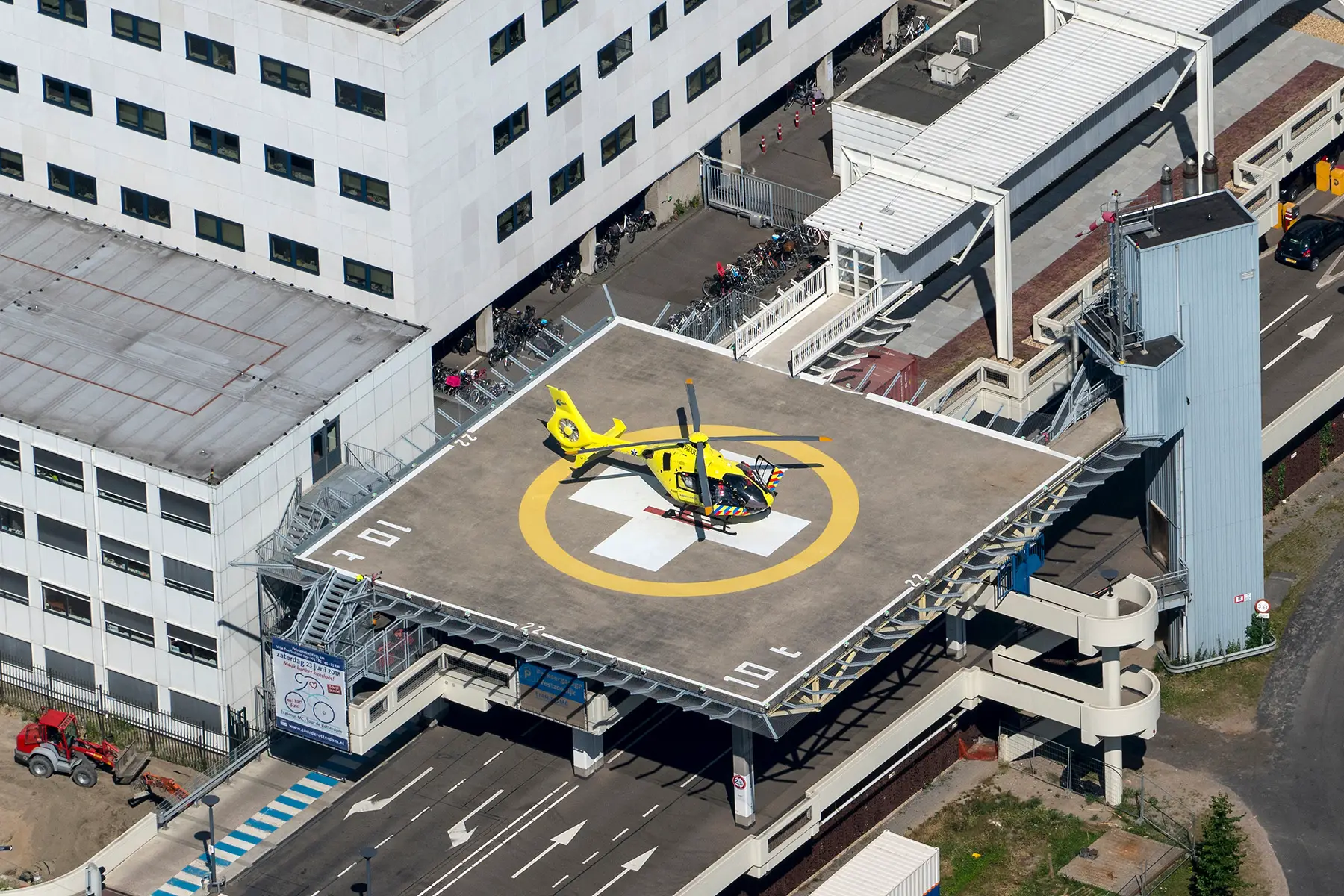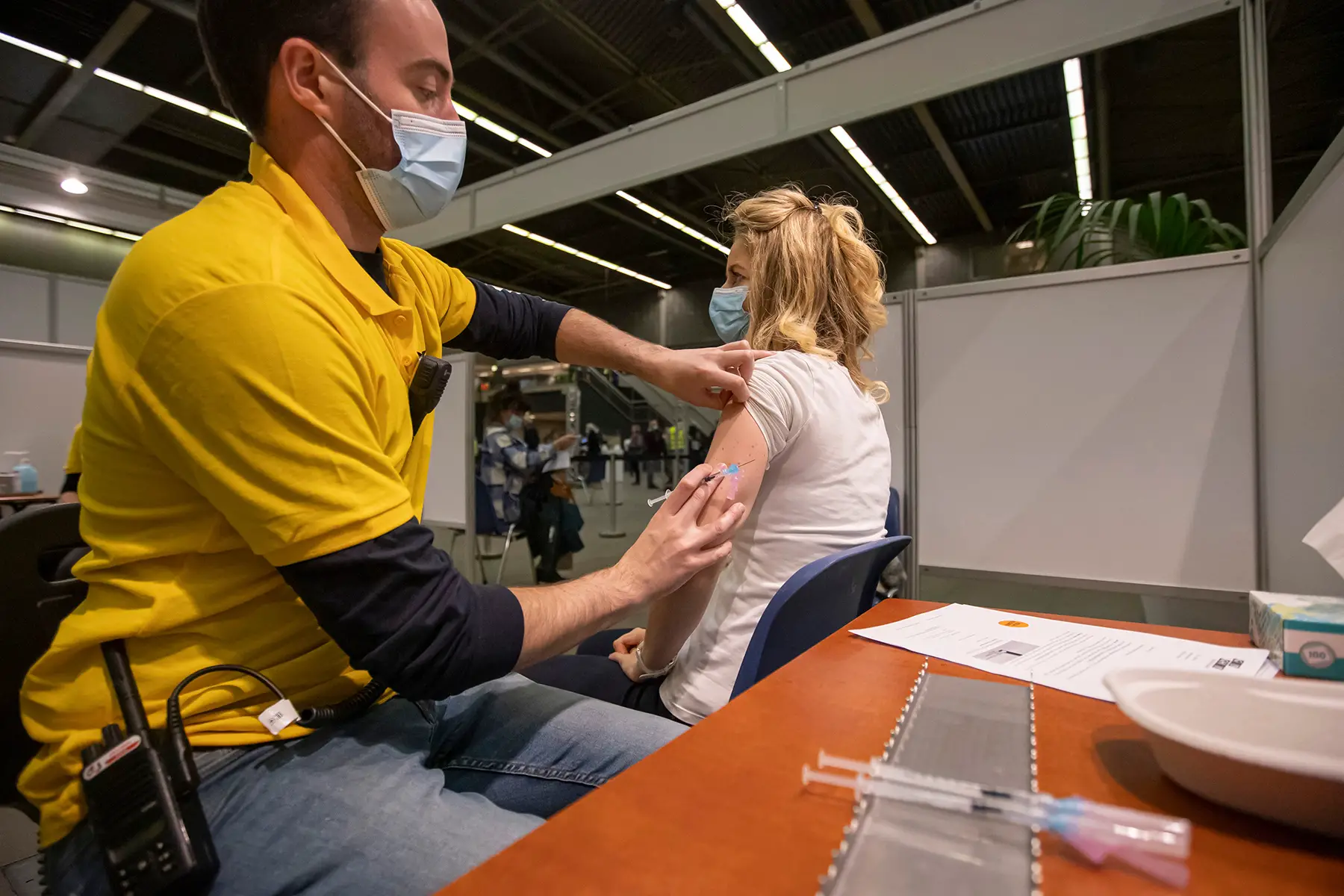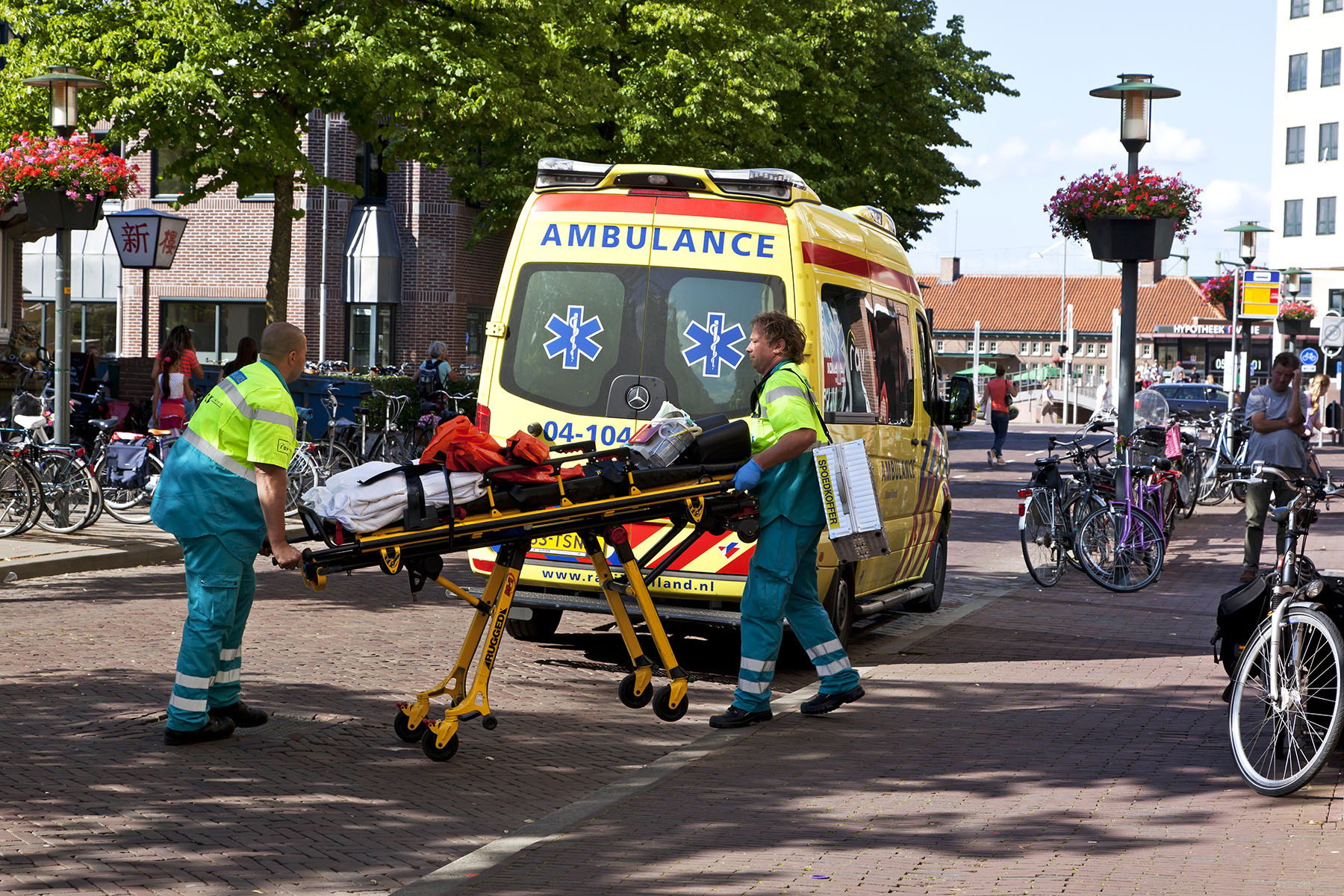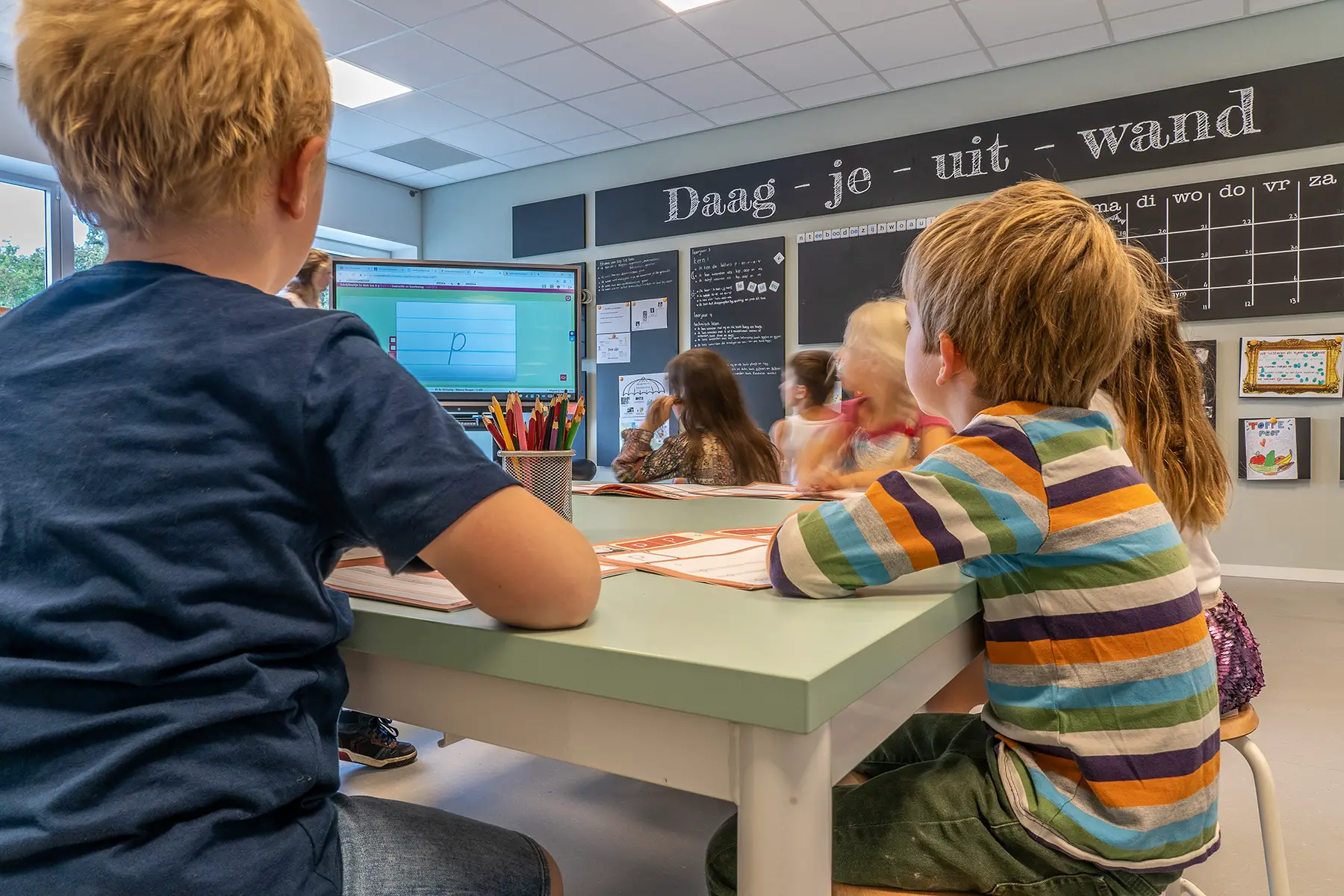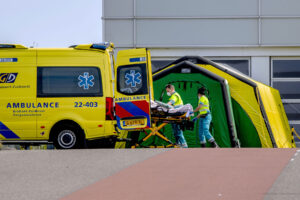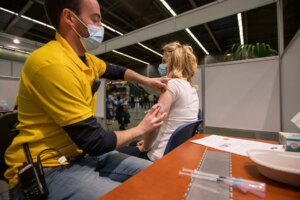If you contract COVID-19 in the Netherlands and need treatment, your basic health insurance policy will cover any healthcare costs. You can also get a coronavirus vaccine in the Netherlands at no cost. With this guide, you can find up-to-date information on COVID-19 measures and support in the Netherlands and learn how to protect yourself against the virus. The topics of the guide include:
- COVID-19 in the Netherlands
- COVID-19 rules and measures in the Netherlands
- COVID-19 apps in the Netherlands
- COVID-19 testing in the Netherlands
- COVID-19 vaccinations in the Netherlands
- International travel during COVID-19 in the Netherlands
- Long COVID support in the Netherlands
- Coronavirus support for businesses, self-employed, and freelancers in the Netherlands
- Coronavirus and education in the Netherlands
- COVID-19 support for vulnerable people in the Netherlands
Cigna Global
Enjoy peace of mind while living in the Netherlands with Cigna Global’s long-term international health insurance plans (12+ months). Get tailored coverage, direct billing with many providers, complex case management, and global care on demand, with access to a network of 1.5+ million doctors, specialists, and therapists.
COVID-19 in the Netherlands
The Netherlands recorded the country’s first case of coronavirus in Tilburg on 27 February 2020. The COVID-19 outbreak came on the heels of Carnaval weekend. A 56-year-old man had recently returned from northern Italy and joined in the Carnaval festivities shortly before falling ill. The second case of coronavirus was a woman from Diemen who had been skiing in Italy. By April 2020, the outbreak hit an all-time high. More than 3,000 people were being treated in a hospital. About one-third of those patients were in an intensive care unit (ICU).
Health statistics show that COVID-19 was responsible for one in eight deaths in the country during the first year of the pandemic. When compared to the UK, Belgium, France, Italy, and Spain, the Netherlands has had significantly fewer COVID-19 deaths per one million people. However, neighboring Germany recorded fewer deaths, relative to the population.
The National Institute for Public Health and the Environment (Rijksinstituut voor Volksgezondheid en Milieu-RIVM) provides advice and information on coronavirus in the Netherlands. It guides doctors, laboratories, and municipal health services in preventing and treating the virus. The Ministry of Health, Wellness, and Sport (Ministerie van Volksgezondheid, Welzijn en Sport) oversees the organization.
The Dutch government provides the latest statistics on infections, hospitalizations, deaths, and vaccinations on a coronavirus dashboard. You can also check the Dutch coronavirus statistics provided by the World Health Organization (WHO).
COVID-19 rules and measures in the Netherlands
On 15 March 2020, Dutch Prime Minister Mark Rutte declared an “intelligent lockdown” for the country. The government advised people to keep 1.5 meters distance from each other and work from home. They closed businesses that involved physical contact and schools. The Dutch government’s position was that lighter measures would mitigate the economic consequences of the pandemic and result in herd immunity for the country.
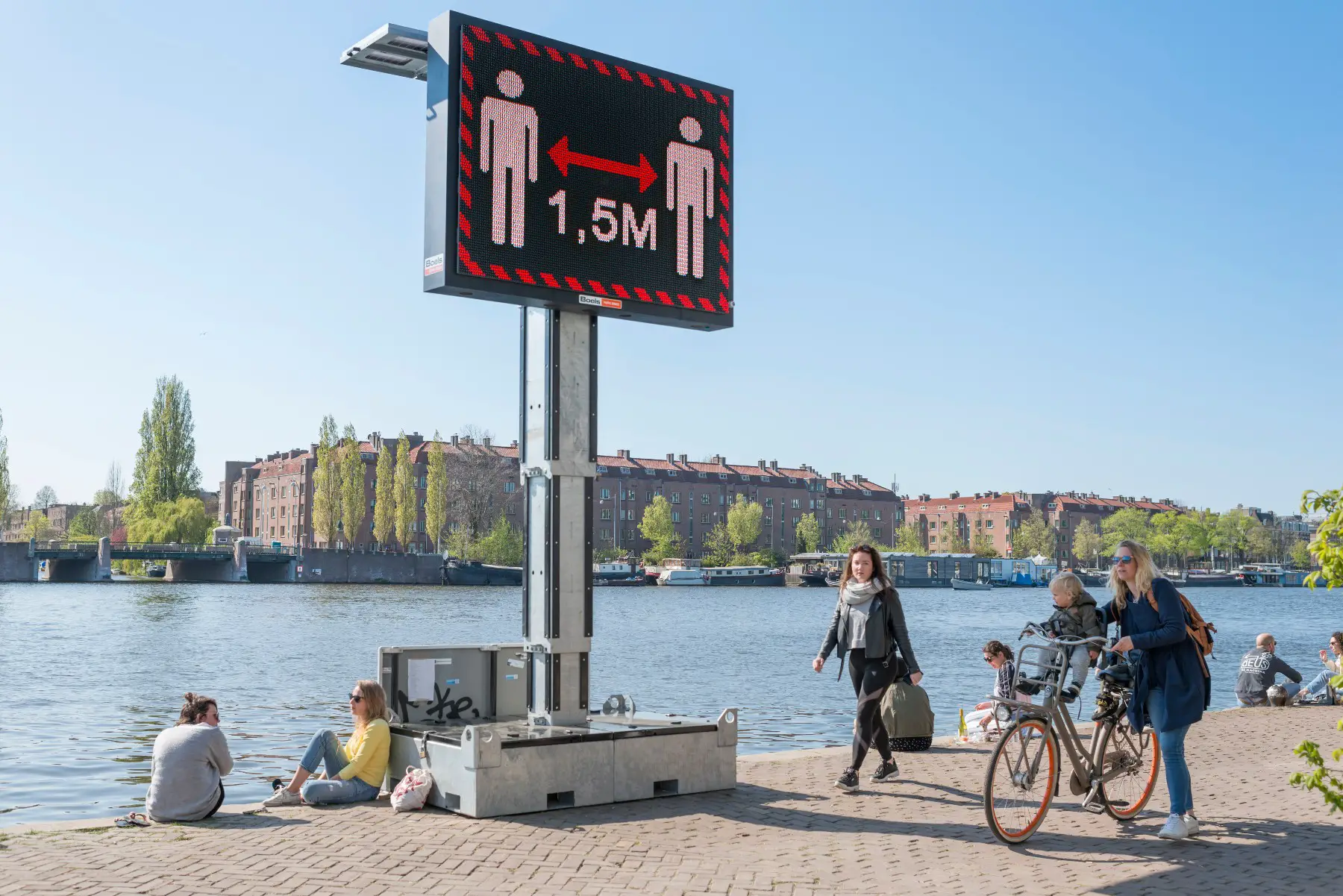
Since then, the Netherlands has closed and then reopened schools and non-essential businesses (e.g., restaurants and bars) and limited the size of gatherings. The Netherlands has had more relaxed regulations for wearing face masks than neighboring counties. However, at the height of the pandemic, face masks were mandatory in indoor spaces and public transportation. Borders have generally remained open to countries not considered high-risk, but authorities strongly advised people to avoid non-essential travel. The government also implemented a controversial night curfew that lasted for several months at the beginning of 2021. It was the first mandatory curfew in the Netherlands since World War II.
Dutch rules require people who test positive for COVID-19 to self-isolate for 10 days. Travelers returning from countries the Dutch government considers high-risk for coronavirus and people directly exposed to an infected person must also quarantine. The government adjusts the measures frequently based on the infection rate and hospitalizations in the country. As such, it is best to check official sources for the latest requirements. You can also check general health guidelines for the coronavirus from the World Health Organization (WHO).
COVID-19 apps in the Netherlands
The Netherlands has several official apps to help people during the pandemic. Here’s a list of those that are generally the most useful:
- COVID Certificate for travel with CoronaCheck (also known as the EU Digital COVID Certificate or EU DCC): as of September 2021, this app is essential for travel and accessing events and cultural activities, as well bar, restaurants, and certain other inside spaces. The app provides you with a QR code to show proof of your COVID-19 vaccination or a negative test result. If you’ve been vaccinated in a non-EU country but are resident in the Netherlands, you can still apply for a QR code as proof of vaccination.
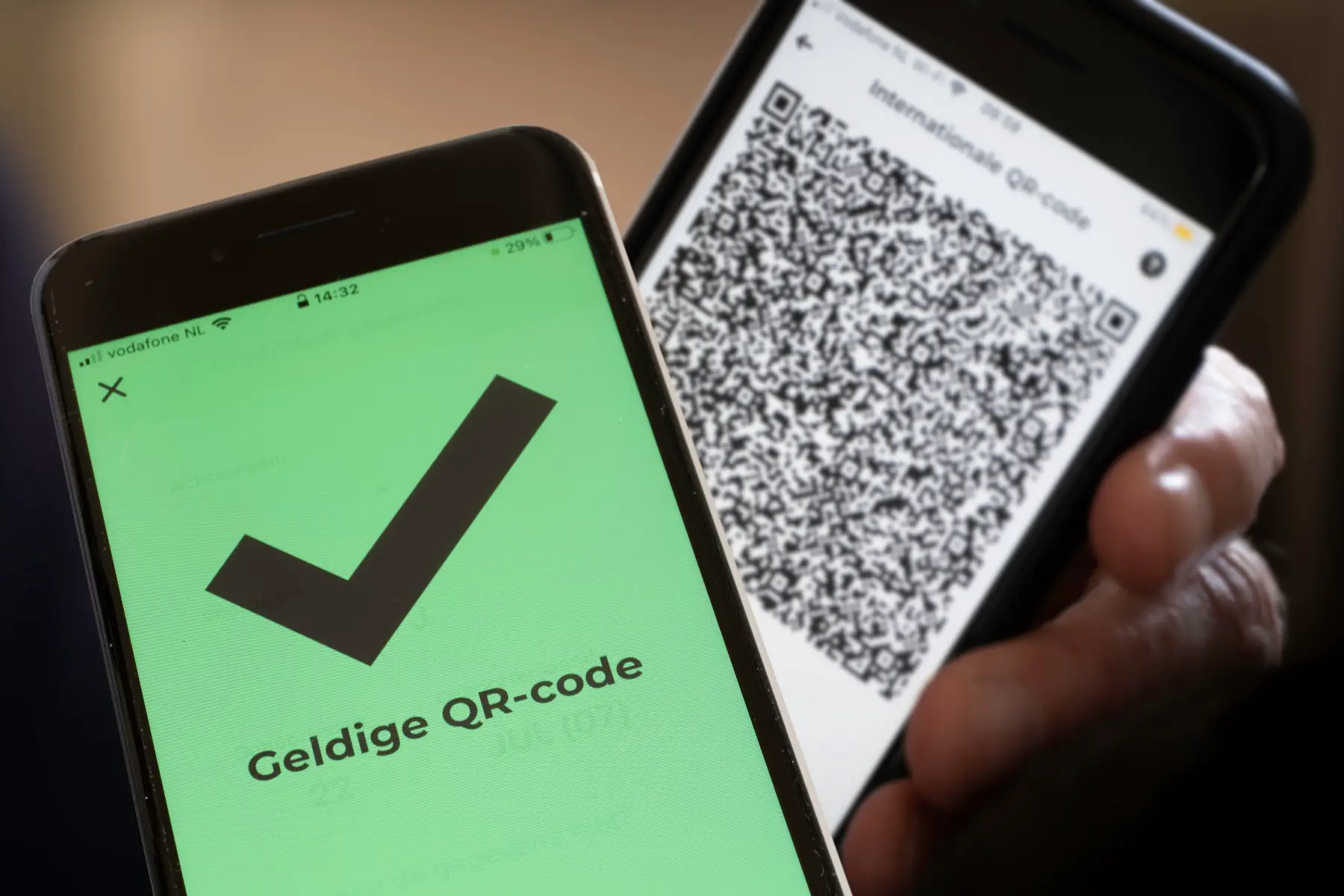
- CoronaMelder helps alert you if you’ve been exposed to COVID-19.
- Foreign Affairs and Customs travel app (in Dutch): provides official travel information from the Dutch authorities, not only related to the coronavirus.
COVID-19 testing in the Netherlands
The Netherlands has options for several different tests to detect a coronavirus infection. However, not all COVID-19 tests are equal and the health authorities have advice for when people should use specific types of tests.
PCR test for COVID-19
The Dutch government asks people who know they’ve been exposed to COVID-19 to self-isolate. Then, make an appointment to take a PCR test on the fifth day after you were around with someone with the virus.
The health authorities also require people who are experiencing coronavirus symptoms to self-quarantine. In that case, you should make an appointment for a PCR test as soon as possible, by phone or via the online portal. Here is what you should know to get a PCR test:
- The health authorities will test you at the nearest municipality facility (GGD).
- A health worker will collect a sample from your nose and throat with a cotton swab. A laboratory will test the sample.
- The test is free for residents of the Netherlands.
- Be aware you need your DigiD to make the appointment. You must have an appointment in advance, the email confirmation, and a government-issued photo ID.
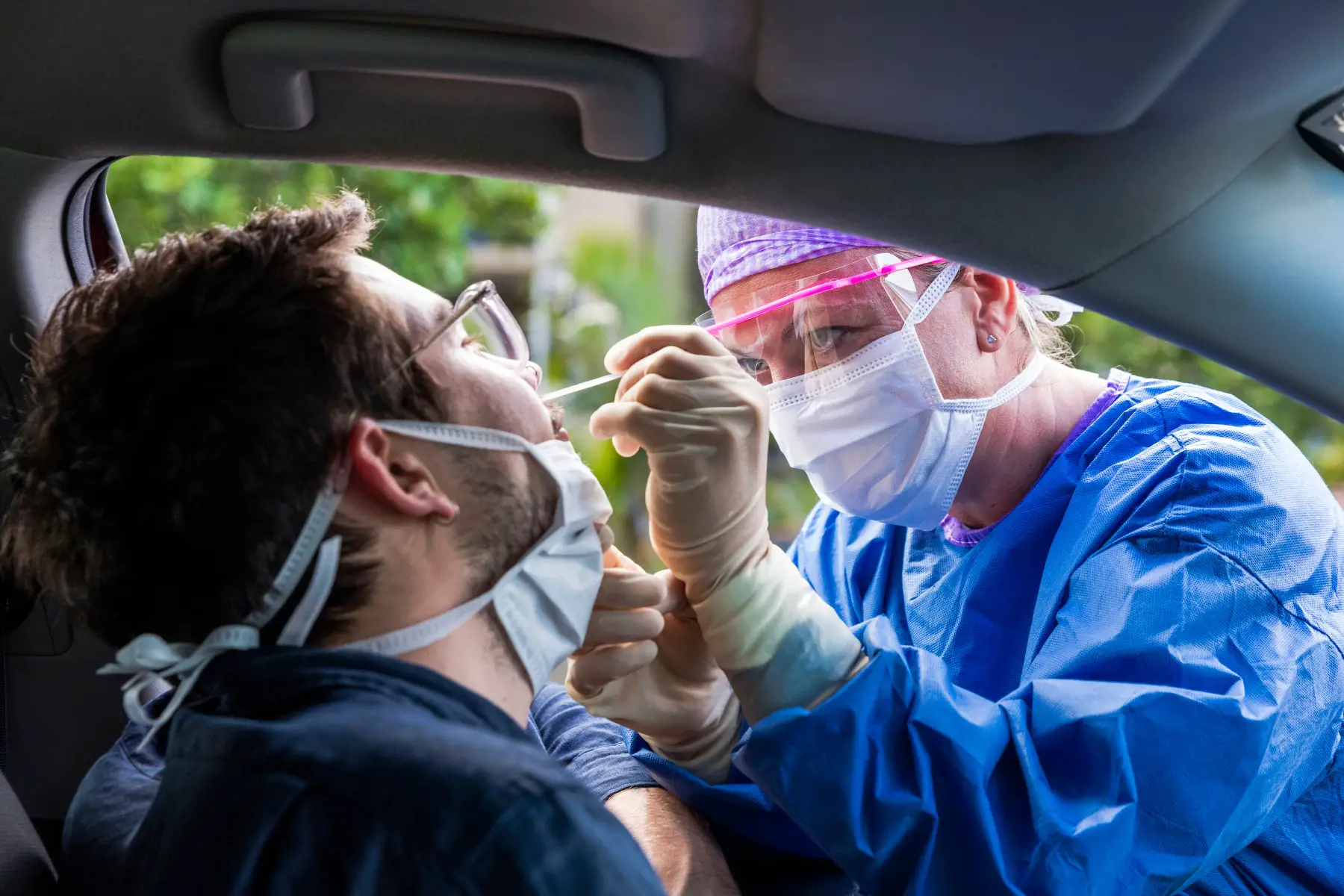
PCR test for travel and large events
In many cases, you will need proof of a negative coronavirus test in order to travel abroad. The Dutch government frequently updates the coronavirus travel advice and requirements (website in Dutch). Typically, you will only need to show proof of vaccination. However, even if you have been vaccinated, you may still need proof of a negative test.
The most widely accepted test for travel is a PCR test. The Dutch government made this kind of testing available for free (also for non-residents of the Netherlands) during the high summer travel season in 2021. However, you should check this website for the latest details on cost and scheduling a test.
If you get a free test, you can only show your negative test result using the CoronaCheck app or a printout of the QR code. To travel with a negative test result without using CoronaCheck, you must have a test result from a commercial test provider. Non-vaccinated people may need a COVID-19 test result that is no more than 24 hours old to enter an event, restaurant, or bar.
Antigen test
The antigen test detects the presence of antigens or fragments of the virus (proteins). This means that you have some degree of immunity to the virus. If you are carrying the virus, the antigen test will quickly show that result – usually 15 minutes after applying the sample to the test set.
The antigen test is less sensitive than the PCR test, so there is a higher risk of a false negative. You can take this test in some municipal healthcare COVID-19 test lanes.
Self-test (antigen test)
An antigen self-test is a COVID-19 test that you can buy in a shop or pharmacy to test yourself. In the Netherlands, these tests typically cost less than €10 each.
Self-tests are less reliable than a PCR test or antigen test done by a professional. As such, self-tests are not suitable for:
- People with symptoms
- Anyone who has had contact with someone who has COVID-19
- Travellers returning from a high-risk area
You must always confirm a positive result from a self-test must with a professional PCR test or antigen test by the GGD.
Breath test (breathalyzer)
The ‘breath test’ or breathalyzer, also known as the electronic nose, examines your exhaled air for molecules indicating that you are infected with the virus. This test is mainly suitable for excluding the possibility that you are currently carrying the virus.
You should always confirm a positive breath test must with a different test, such as a PCR or antigen test. The breath test is not commonly used in the Netherlands.
Coronavirus testing for children
The rules for testing children for COVID-19 in the Netherlands can depend on the child’s age. However, no matter how old the child is, if they have severe symptoms of coronavirus infection, they must stay at home and get tested. Severe symptoms are fever, shortness of breath, or frequent coughing. You should call your primary care physician if your child is very sick.
Children aged 12 and under can go to school or daycare if they have cold symptoms. You should always keep your child at home and arrange a coronavirus test if:
- Symptoms are severe.
- They’ve been in close contact with someone who has coronavirus.
- Your child has COVID-19 symptoms and has been in contact with someone who has coronavirus.
- The municipal health service (GGD) advises you to get your child tested as part of an outbreak investigation.
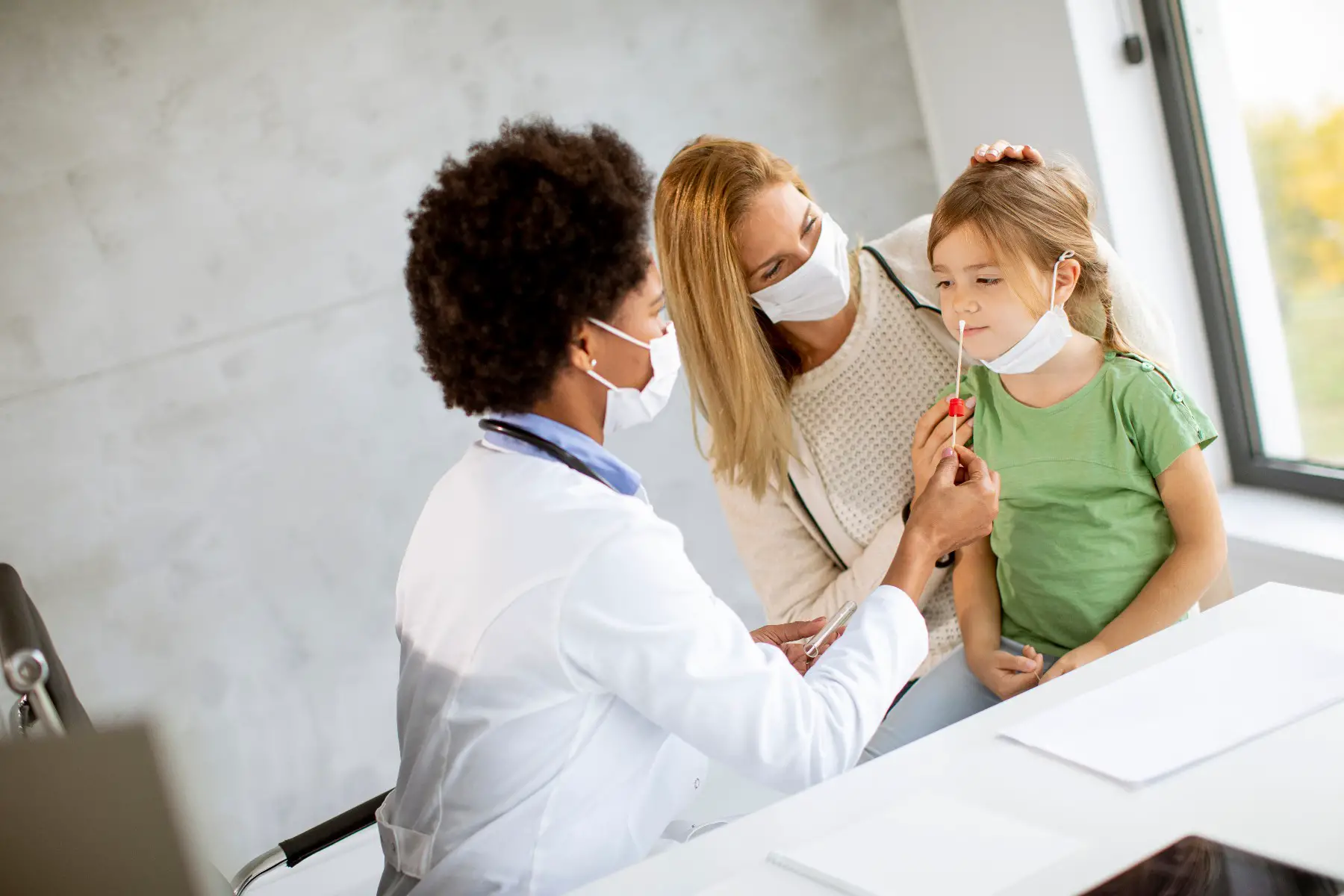
If your child has severe symptoms but you do not want to get your child tested, keep them at home. A child who has had no symptoms at all for 24 hours may go to school or daycare again. If the symptoms haven’t gone away after 7 days, your child may go back to school or daycare. The Netherlands uses a less invasive nasal swab PCR test for children age 12 and younger. You can learn about it by reading this explanation (in Dutch).
Secondary school pupils and teenagers aged 13 and over must stay home and get tested if they have symptoms, or if they have been in contact with someone who has coronavirus.
Testing children for COVID-19 is free of charge in the Netherlands when they have symptoms or have been exposed to the virus. Check this website for the latest information and details for making an appointment.
If you test positive for COVID-19 in the Netherlands
You and anyone who lives with you or has close contact with you should self-quarantine for 10 days if you test positive for coronavirus. Someone from the Municipal Health Service (GGD) will call you for the purpose of contact tracing. Together you will try to establish:
- Who infected you (the source)
- Who you have had contact with
- People you might have infected
The GGD will tell your contacts that they could be infected with the virus. They will have to self-quarantine and get tested. The Dutch health authorities adjust their regulations for contact tracing based on the amount of positive COVID-19 cases in the Netherlands. As such, you should check this website for the latest requirements.
After 11 days have passed since you tested positive for COVID-19, you can receive proof of recovery via the CoronaCheck app. This only applies if you took a test at a Municipal Health facility. You can use this proof for EU travel and attending events in the Netherlands.
COVID-19 antibody tests in the Netherlands
Antibody (IgG) testing can determine whether you have previously been infected with COVID-19 if your symptoms started more than 3-4 weeks ago. There are two types of antibody tests available: venipuncture and finger prick. Venipuncture tests show the level of antibodies present in the body. The finger prick determines whether antibodies are present or not. For the finger prick test, you don’t require a referral from your general healthcare practitioner, and results are available within 20 minutes.
If you have long-term symptoms that could be related to COVID-19, your primary care physician can refer you to get the venipuncture antibody test. You can get an antibody test from a commercial provider. These range from €49.99 to more than €100. However, they are not suitable for travel or other official purposes and are not always reliable.
COVID-19 vaccinations in the Netherlands
The Dutch government strongly advises getting vaccinated as the best way to prevent the spread of COVID-19 and to avoid becoming seriously ill or even hospitalized in the event that you are infected with the virus.
COVID-19 vaccines became widely available in the Netherlands during the summer of 2021. The government first vaccinated the population according to age groups and risk factors. By October 2021, around 80% of the population was fully vaccinated.
Every resident from 12 years of age and older is now invited to get vaccinated, free of charge, at official vaccination sites located in nearly every municipality. You can make an appointment for your child to get vaccinated as soon as they turn 12. Pfizer and Moderna are the primary vaccines in the Netherlands. Janssen and AstraZeneca have also been administered to some groups but they are less common.
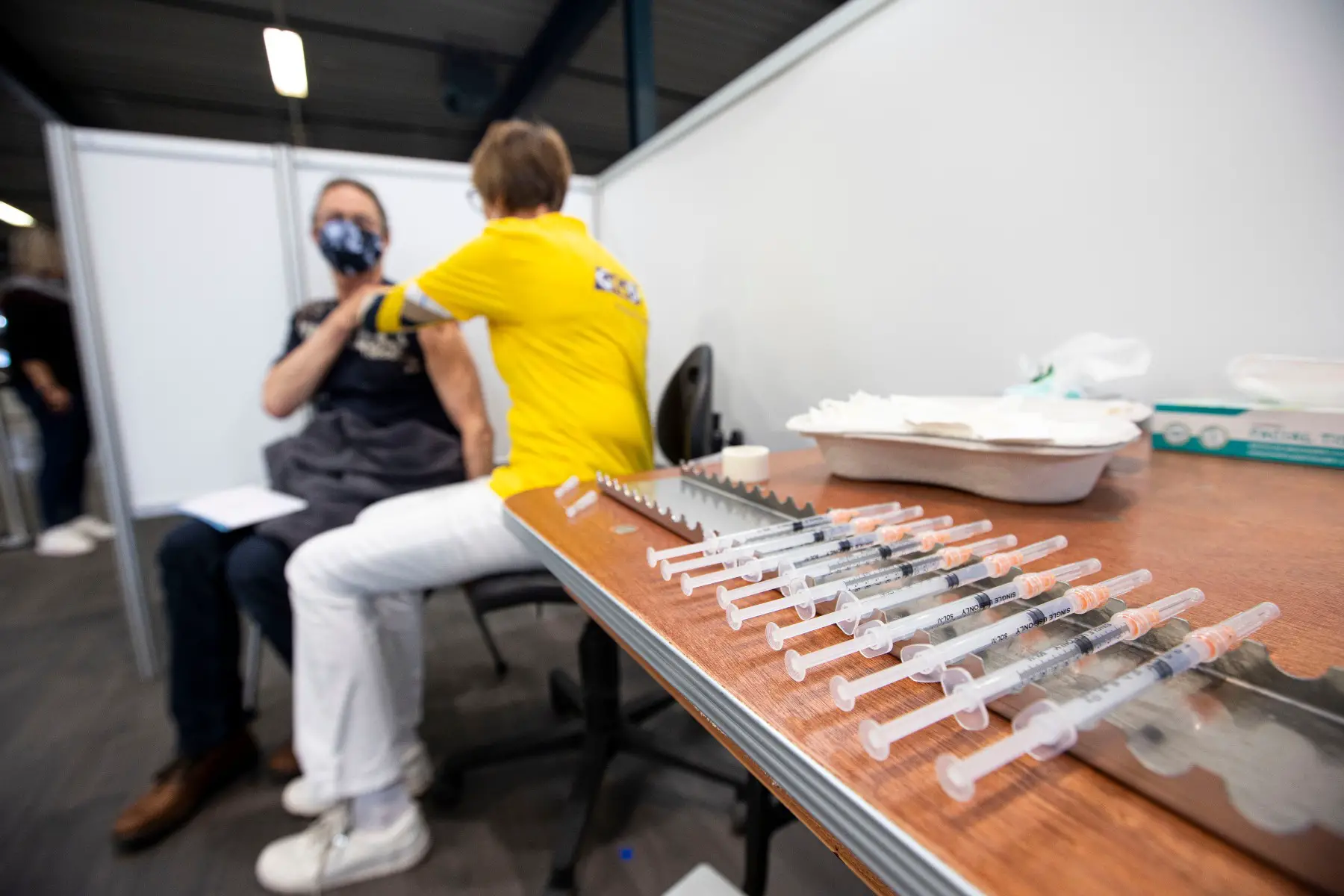
Pregnant women can get mRNA vaccines made by Pfizer and Moderna. Doctors advise even those who have underlying health conditions (such as diabetes, heart disease, or respiratory problems) to get a COVID-19 vaccine. During pregnancy, women have a higher risk of becoming seriously ill from COVID-19, especially in the third trimester.
Options for getting a coronavirus vaccine in the Netherlands
- Use the official government website to make your vaccine appointment (DigiD required). You will need the proof of your appointment, a government-issued ID, and a face mask. You’ll receive either the Pfizer or Moderna vaccine.
- If you don’t have an appointment, you can also go to a walk-in vaccine center. Don’t forget to take your valid ID and face mask.
- If you’re over age 18 and you would like to receive the Janssen vaccine (one jab), you can book your appointment at this link (information in Dutch).
- Follow the coronavirus vaccine information for temporary residents if you are only staying in the Netherlands for less than four months.
International travel during COVID-19 in the Netherlands
Travel advice and restrictions change quickly and often. Therefore, it is best to stay up-to-date with official travel information provided by the Dutch government.
The Netherlands and the EU use a color-code system that is based on a country’s coronavirus infections. The Dutch authorities advise residents of the Netherlands to only travel to countries with a low number of coronavirus infections. They are shaded green or yellow in the Ministry of Foreign Affairs travel advisories. You should not go to orange or red countries on holiday as the infection rate is very high.
You must show a negative COVID-19 test result if you are traveling to or returning to the Netherlands from:
- A COVID-19 risk area in the EU/Schengen area and you can’t show proof of vaccination or recovery (the EU Digital COVID Certificate, for example).
- All countries/areas outside the EU/Schengen unless you can show proof of vaccination.
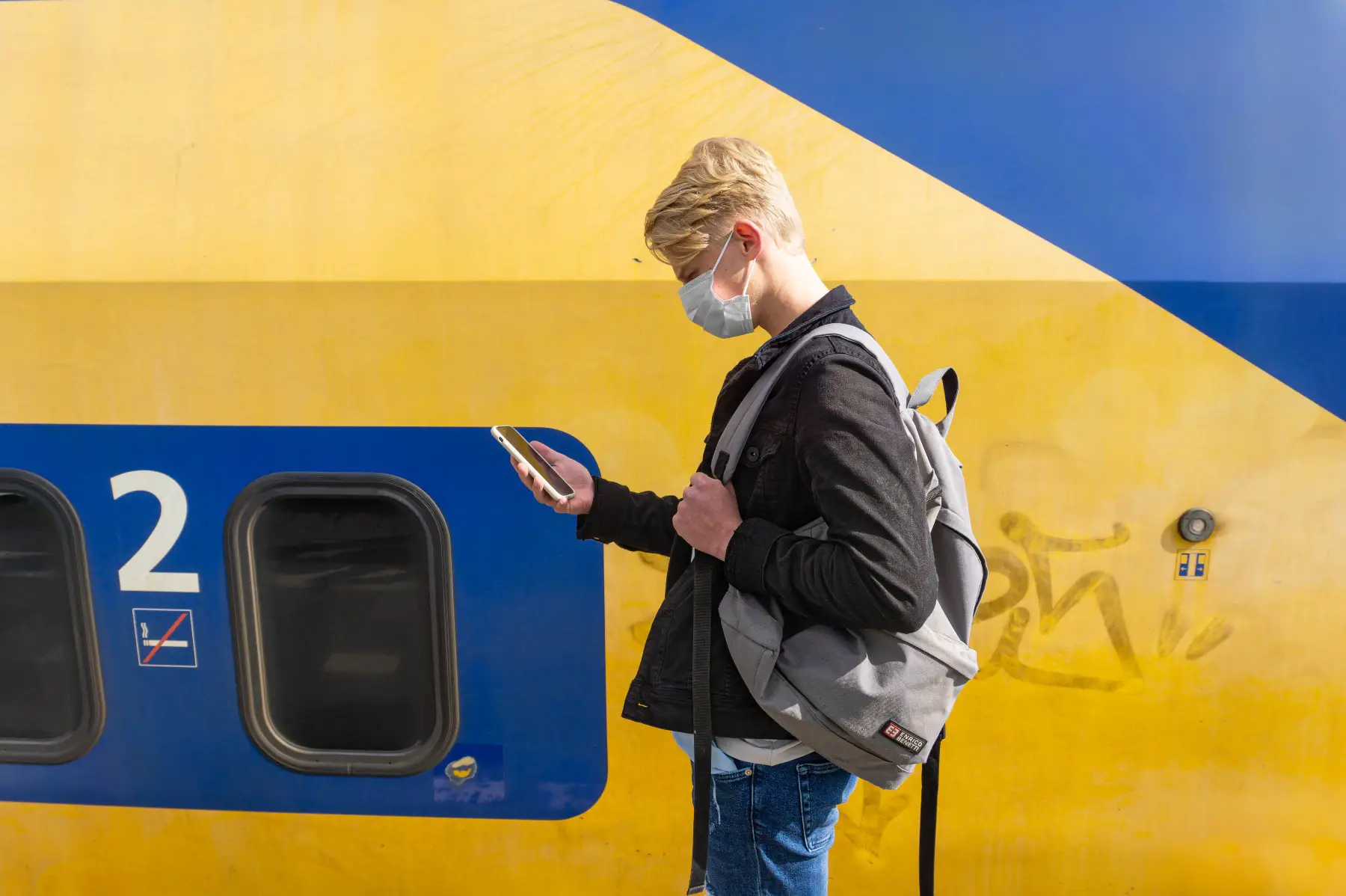
EU citizens who have been fully vaccinated against coronavirus can obtain an EU Digital COVID Certificate (DCC) and use it to enter the Netherlands. If you do not have a DCC and/or are a resident of a country outside the EU and the Schengen area, you can in most cases enter the Netherlands using paper proof of vaccination.
The rules for testing before entering the Netherlands and quarantining on arrival can change with little advance notice. You can use this website to check what you need to enter or re-enter the Netherlands from abroad.
Long COVID support in the Netherlands
Some people who get COVID-19 experience symptoms weeks or months after contracting the virus. This can happen even when their initial symptoms were not severe. According to an initial estimate from the RIVM, up to one in five people still have symptoms four or five weeks after testing positive for COVID-19.
In June 2021, the Dutch news reported that hundreds of children in the Netherlands are also suffering from ongoing symptoms of coronavirus and other possibly related health complications. Long-COVID is a phenomenon that Dutch health authorities are still researching.
Resources for people suffering from long COVID
- C-support (website in Dutch): working to assist COVID-19 patients suffering from long-term symptoms.
- Survivor Corps: international, not-for-profit initiative educating and mobilizing COVID-19 survivors, connecting them with the medical, scientific, and academic research community.
- Long-COVID Kids: resource available in 11 languages including French, German, Spanish, Italian, Arabic, Polish, and Portuguese.
- Zorgwijzer website (in Dutch): information and comments from other coronoavirus patients in the Netherlands that may help answer your questions on healthcare insurance
Healthcare for people with long-COVID
Anyone with chronic complaints after a COVID-19 infection has a right to care covered by their basic health insurance, which includes physiotherapy, ergotherapy, dietary advice, and speech therapy. You don’t need proof of a positive COVID-19 test or have been hospitalized.
Your general practitioner will refer you or your child to a specialist if symptoms persist. For further advice on a post-Covid referral, see the guidelines of the Nederlands Huisartsen Genootschap (NHG, website in Dutch).
Coronavirus support for businesses, self-employed, and freelancers in the Netherlands
Shortly after the onset of the coronavirus pandemic, the Dutch government announced a number of measures to prevent unemployment and support entrepreneurs. By June 2021, economists predicted a swift financial recovery for the country and did not expect joblessness to rise above 4.5%. The government ceased many of the business support measures in October 2021.
Here is a list of resources to check if you’re a business owner or self-employed person in the Netherlands and are in need of financial help due to the COVID-19 pandemic.
- Go to this webpage from the Dutch government and the Netherlands Chamber of Commerce for updated details on business support measures in the Netherlands.
- Check your support eligibility – this site enables you to determine which programs are available to you, depending on your work, industry, and financing needs.
- Kamer van Koophandel (KvK) – the Netherlands Chamber of Commerce has a list of resources that can assist business owners and self-employed people.
Coronavirus and education in the Netherlands
In March 2020, the Netherlands went into lockdown in response to the pandemic and schools had to close their doors, to open again in May (primary schools) and June (secondary schools). When the University of Amsterdam surveyed more than 3,500 parents in the Netherlands between April and September 2020, they found that children were overall showing resilience. Parents reported decreases in children’s emotional and behavioral problems during the time period and no differences in emotional or behavioral problems during school closures.
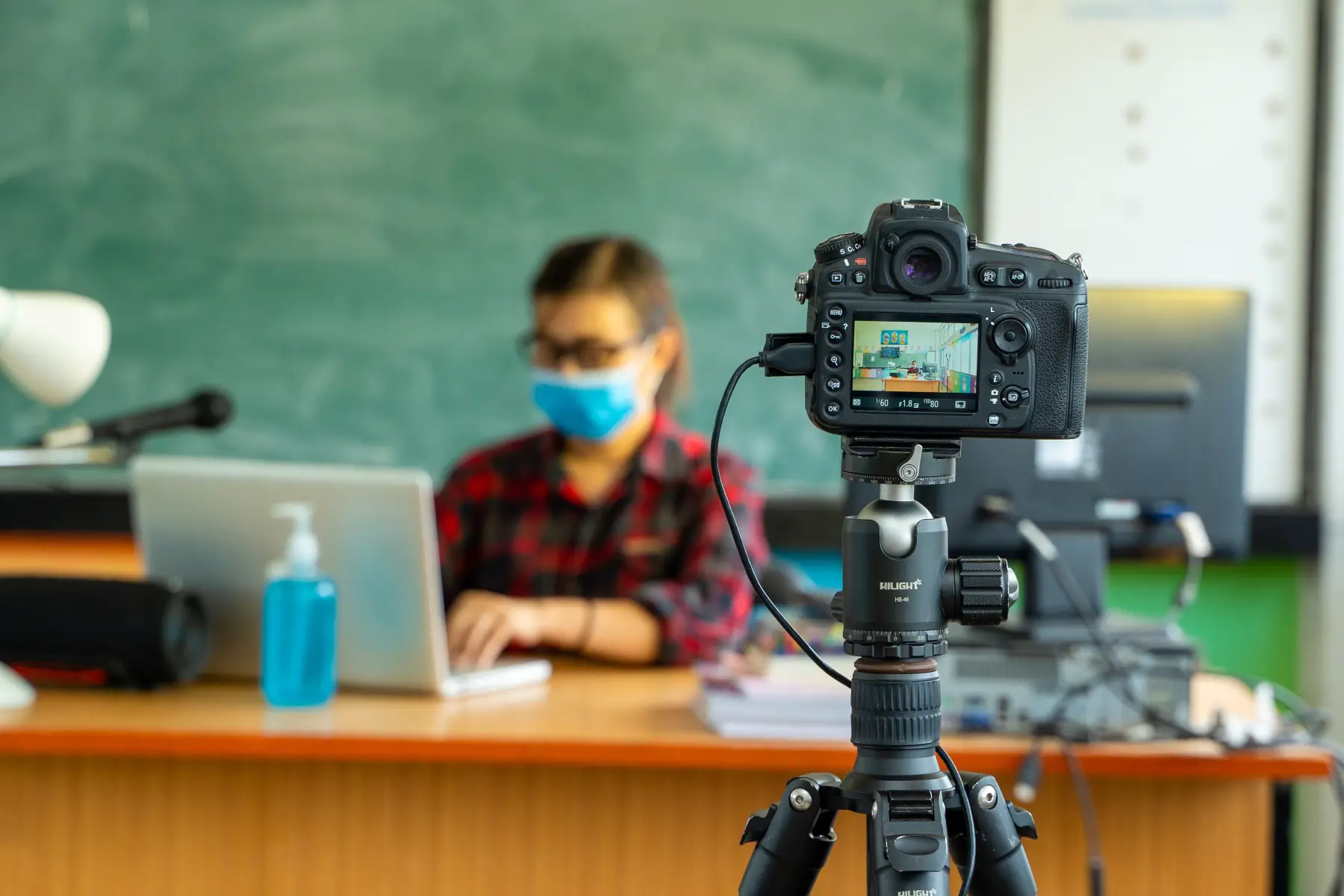
Meanwhile, a study published in the Proceedings of the National Academy of Sciences (PNAS) revealed a learning loss equivalent to one-fifth of a school year, the same period that schools remained closed. However, the learning losses are up to 60% larger among students from less-educated homes.
Use this website to check the most current RIVM recommendations for schools. The Netherlands also has specific rules about what you should do if your child has been exposed to coronavirus. Use this website to check the quarantine rules.
COVID-19 support for vulnerable people in the Netherlands
Before the coronavirus pandemic, the RIVM found that one in 10 people in the Netherlands suffers from loneliness. The organization determined that loneliness results in €2 billion in added healthcare costs. It is safe to say that the number has increased since then. If you’re suffering from extreme loneliness or psychological distress, you should contact your primary care physician who can refer you to a mental health specialist or call the police or emergency services.
There are other grassroots programs for vulnerable people during the pandemic, including:
- Coronahelpers.nl (in Dutch) – you can use this website to volunteer or get help with things such as meeting for conversation, dog walking, simple chores, and more.
- Red Cross Ready2Helper: With more than 70,000 volunteers, this Red Cross civilian aid network offers a variety of different services, including delivering medicine and groceries.
- Serve the city: Organizes activities in Amsterdam like baking pancakes for the elderly, writing thank-you cards for healthcare professionals and many other feel-good projects.
